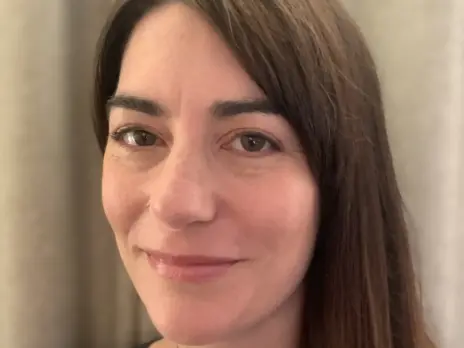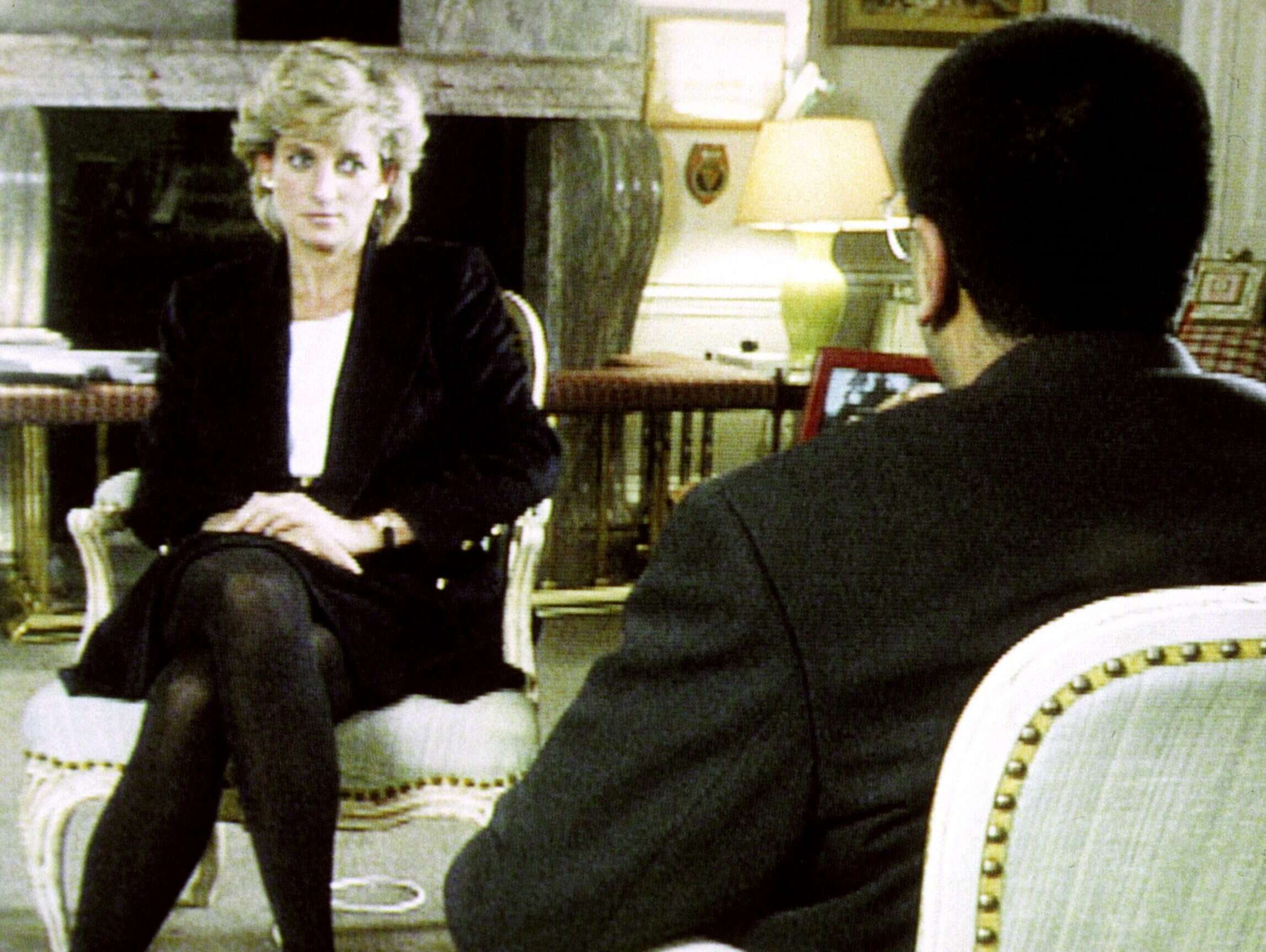
The Dyson report into Martin Bashir’s Panorama interview with Princess Diana has exposed critical failings at the BBC, but it also highlighted a triumph of dogged journalism in bringing the story to light.
Investigative reporting by several journalists (some of whom have spoken to Press Gazette for this article) carried out more than two decades apart helped bring the UK’s most powerful news organisation to account.
More than 23m people in the UK alone watched the hour-long interview when it aired on BBC One in 1995. It remains one of the most famous TV interviews of all time, coming when Diana’s celebrity was at its peak and her personal life in turmoil. She died less than two years later.
Last week an investigation, prompted by media reports, carried out by former Supreme Court judge Lord Dyson, found that Bashir had used “deceitful behaviour”, including the use of faked bank statements, to secure the Diana interview in a “serious breach” of BBC guidelines.
What has emerged is a scandalous cover-up at the most trusted news network in the world, with a lie causing a 25-year delay in the truth about the circumstances around the Diana interview finally emerging.
The fallout from this scandal is still ongoing, but here we look at the timeline of how it was uncovered by journalists, including Nick Fielding, Jason Lewis, Andy Webb, Rosamund Urwin, Nicholas Hellen and Richard Kay.
[Read more: Eight unanswered questions for the BBC which mean Bashir scandal will not go away]
Bashir scandal timeline
1995-1996
20 November 1995 – Martin Bashir’s BBC Panorama interview with Princess Diana aired on BBC One.
After it had aired, rumours were swirling that something was off with Bashir’s interview with Diana.
“Anybody who’d worked on a busy news desk in Fleet Street knew there was something odd about the interview,” former Mail on Sunday investigative reporter Nick Fielding told Press Gazette. He eventually received a tip-off that pointed him to BBC graphic designer Matt Wiessler.
Wiessler had mocked up some bank documents for Bashir at his request, but was not told what they were for. He grew concerned after watching the Diana interview that there was a connection between the documents and the interview and raised this with the BBC. Wiessler’s freelance contract was not renewed when it expired a few weeks later.
In 1996, Fielding found Wiessler living in a narrowboat on the Thames. While he wasn’t the first journalist to get there, Wiessler had “turned everybody else away” and only opened up to the Mail’s reporter. “He needed somebody to take up his case, but he also needed protection, and I think I offered both of those things to him,” said Fielding.
“He made a statement to us. We had an awful lot of work to do to check it out, to be sure that he was telling the truth, but I became convinced at a certain point that he was telling the truth – and from that point on there was no turning back.”
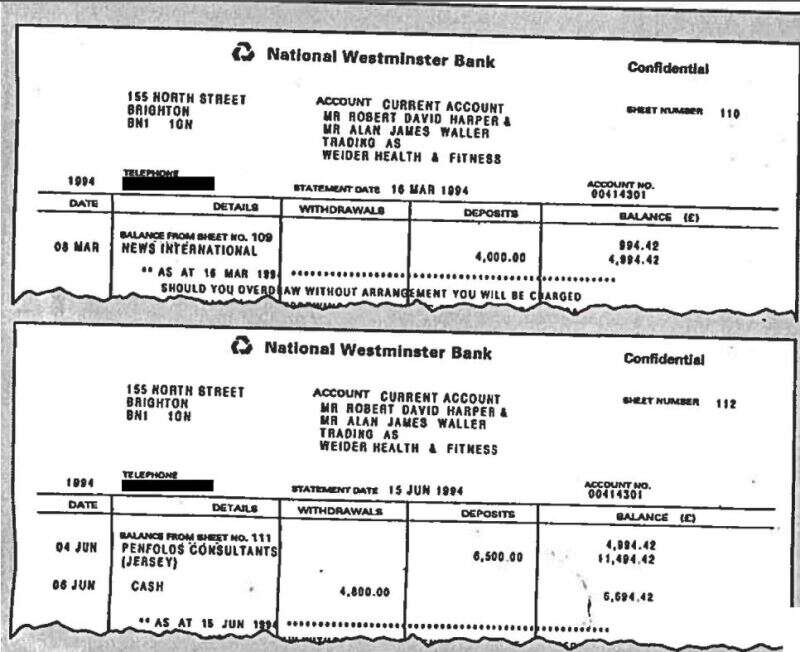
Some of the forged bank documents commissioned by Martin Bashir
21 March 1996 – Jonathan Holborow, then editor of the Mail on Sunday, wrote to Diana’s brother, Earl Spencer, “asking whether he would talk about a story that he was planning to publish at the weekend”.
Holborow wrote: “The nub of this is that Martin Bashir, who, as you recall, interviewed Her Royal Highness The Princess of Wales for the Panorama programme, secured the interview through contact with you after explaining that he was doing a programme about telephone bugging.
“I understand that in order to convince you of his bona fides Mr Bashir showed you two documents purporting to come from the Security Services which indicated that telephones at Kensington Palace had been tapped. We understand that the documents he showed you were bogus.
“The Mail on Sunday understands that following you being shown these documents, Bashir was able to secure the Panorama interview with the Princess.
“I am approaching you direct because I know you feel strongly about the underhand way in which some newspapers and broadcasting companies have acted against both you and your sister in the past and as a senior editor I would very much like to talk to you about the sequence of events.”
22 March 1996 – Earl Spencer replied to Holborow, declining to “make any statement on this matter”.
The MoS decided not to run the story that weekend, but Spencer contacted the BBC over concerns about Bashir’s use of forged documents.
As a result Tim Gardam (then head of weekly programmes in BBC News and Current Affairs) asked Steve Hewlett (then editor of BBC Panorama) to speak to Bashir. Bashir told Hewlett he had not shown the faked bank documents to anyone “and he specifically mentioned Earl Spencer”.
On the basis of this information, Gardam told Richard Peel (then head of communication) that there was “no foundation for the Mail on Sunday story”.
[Read more: Steve Hewlett dies: ‘A trusted voice that embodied everything positive in public service journalism’]
23 March 1996 – Three Mail on Sunday journalists contacted the BBC’s Tim Gardam at home.
The trio suggested that the faked documents “had been shown to Princess Diana and Earl Spencer, and that BBC Management had known of this before the interview and had subsequently tried to keep it quiet”.
Gardam contacted Bashir who denied showing the documents to anyone. A BBC press officer spoke to the MoS editor later the same day, which prompted Gardam to ring Bashir again, which is when he finally admitted that he had lied about not showing the forged bank documents to anyone, having shown them to Earl Spencer (in September 1995).
“I was absolutely staggered that a BBC journalist… could have behaved like this,” Gardam told Lord Dyson.
Gardam was due to leave the BBC within days of his call with Bashir and so handed the matter over to Tim Suter (who took over as managing editor of weekly programmes in BBC News and Current Affairs) and Tony Hall (then chief executive of BBC News and Current Affairs).
28 March 1996 – Bashir was interviewed by Tim Suter and Richard Peel at the BBC.
They concluded that Bashir’s “dealings with Princess Diana in securing the interview were absolutely straight and fair; but that his use of some material in the early preparation of the programme was in breach of the BBC Producers’ Guidelines on straight dealing and justified a reprimand”. But Bashir was never officially reprimanded.
6 April 1996 – Amid increasing pressure from reporters, the BBC press office issued a statement to the Mail on Sunday after consulting Lord Hall and Steve Hewlett.
The statement said (as per press log in Dyson report) that the faked bank documents “were never in any way connected to the ‘Panorama’ on Princess Diana, and there was never any intention to publish them in the form in which they have been leaked…”.
This was at best inaccurate and at worst a lie, the BBC having by then established that the faked documents had indeed been shown to Earl Spencer in the process of Bashir obtaining an interview with Princess Diana.
Fielding described this statement to Lord Dyson as “a perfect essay on evading the point and denying the truth”, which the former judge said was “a fair description”. Fielding did not find out that he had been lied to by the BBC until he was interviewed by John Ware for a Panorama on the Bashir scandal, which aired on 20 May 2021.
“I’ve never in the past known about the BBC consciously deciding to tell a lie about a particular story and that’s what happened on that occasion,” Fielding told Press Gazette.
“It really is extremely shocking. They still haven’t apologised to me or to the Mail on Sunday – they’ve apologise everybody else, but they haven’t apologised to us. I feel a bit angry about that.”
He added: “Had they not lied, just imagine what would have happened – the course of history might have been rather different.
“What they did instead was tell a whole pack of lies and crush the story. They strangled it at birth. Okay that’s their prerogative, I guess, they’re very good at doing that kind of thing, but they really went all out, to the extent they didn’t cover our story at all even though it was two front pages saying that one of their senior reporters was a criminal pretty much.”
7 April 1996 – Mail on Sunday journalists Nick Fielding and Jason Lewis broke the story that Bashir used faked bank statements “just weeks before his astonishing broadcast” with Princess Diana.
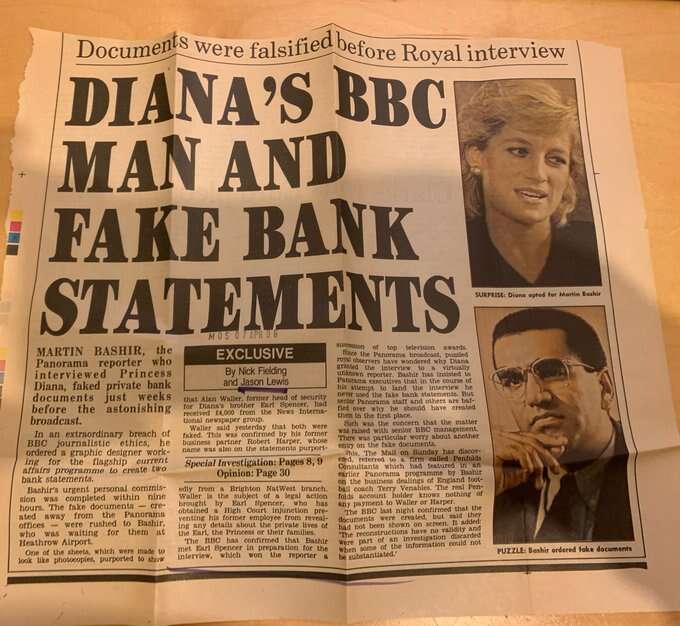
Picture: Jason Lewis
The story ran on the front page, headlined: “Diana’s BBC Man and Fake Bank Statements”. But the paper was unable to stand up the fact that the documents had been shown to Earl Spencer – although it reported that Bashir had met with him – the BBC having so far denied it and Spencer himself having refused to talk to reporters.
The Mail reported: “Bashir has insisted to Panorama executives that in the course of his attempt to land the interview he never used the fake bank statements. But senior Panorama staff and others are baffled over why he should have created them in the first place.”
Both the Daily Mail and the Independent followed up the story with questions to the BBC press office, which again claimed after a “thorough investigation” that “no connection was drawn” between the Diana interview and faked bank statements.
Chris Blackhurst of the Independent specifically asked if the bank statements had been shown to Earl Spencer and if he had been questioned by the BBC. In its press log, the BBC press office said it had replied: “… confirmed the graphics had been put together for a wider investigation, and said we had nothing further to add.”
8 April 1996 – Independent published article, headlined: “BBC quizzed Diana over Bashir ‘fake’.”
At this point stories began to appear in the press suggesting claims about faked bank statements were being made by “jealous colleagues, troublemakers and leakers” at the BBC. Former publicity officer for Panorama Alison Kelly told Lord Dyson she recalled being asked to tell the Panorama team that the BBC were briefing this out to the press.
The BBC itself did not report on the Mail on Sunday’s splash about its reporter, either on radio or TV, despite it running in several newspapers. Responding to a question at the time by Paul Donovan of the Sunday Times as to why it had not covered the story, the BBC replied: “After careful consideration we decided the story was not sufficiently newsworthy”.
17 April 1996 – Bashir met with Lord Hall and Anne Sloman (then deputy head of weekly programmes in BBC News and Current Affairs).
During this meeting the Panorama journalist failed to give “any credible explanation of why he had commissioned the faking of the Waller statements and why he had shown them to Earl Spencer”.
Spencer was not asked for his version of events and Bashir’s account was accepted as true. In her summary note of the meeting, Sloman wrote: “The Diana story is probably now dead, unless Spencer talks. There’s no indication that he will.” Her words were to prove true for 25 years.
28 April 1996 – Sunday Times ran story on Bashir/Diana, headlined: “A Graphic Deception?”, by Paul Donovan.
With no-one outside the BBC able to stand up the fact that Bashir had shown the faked documents to Earl Spencer, the story went cold.
2020-2021
Around the 25th anniversary of the Panorama interview with Princess Diana – and in the middle of a global pandemic – the circumstances surrounding it were once again examined by journalists.
4 October 2020 – The Sunday Times finally revealed that Bashir had shown the faked bank statements to Earl Spencer, with the article: “BBC journalist Martin Bashir ‘misled Diana’s brother’ to secure bombshell interview.”
The story, by Rosamund Urwin and Nicholas Hellen, came from an anonymous tip-off. In its reply to the ST’s press query the BBC admitted publicly for the first time that Earl Spender had in fact been shown the faked bank documents by Bashir.
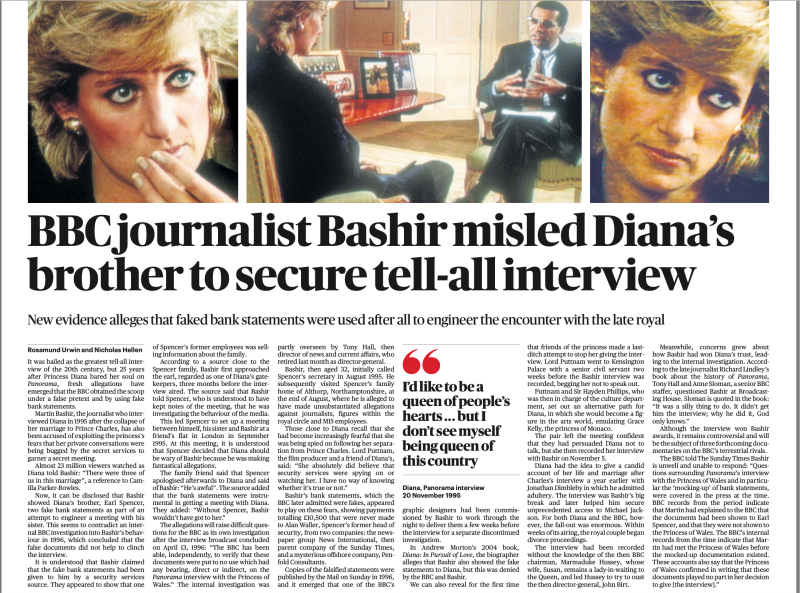
Urwin told Press Gazette: “They stood it up quite late on a Saturday afternoon, at which point I panicked because I did that journalistic thing of thinking ‘hang on a minute they’re saying we knew this’, and then they said: ‘No, we knew this internally at the BBC.’”
She said: “I do think this deserves to be a big story and part of the reason I think that is this is not one bad apple, this is about a cover-up within an organisation that went the whole way to the then-director general and to the director-general until last summer [Tony Hall]…
“These people are establishment figures – he’s Lord, he’s Baron Hall. Why do these people fail upwards? Why would they cover something up that takes so long to expose?”
[Read more: Dyson report shows corporate culture where those who protect BBC fail upwards while whistleblowers are victimised]
But Urwin added: “I don’t want to see the BBC destroyed, I think it’s got brilliant journalists. What I would say is, it should look at its management structures…”
Separately to the Sunday Times, ex-BBC journalist Andy Webb had begun researching the BBC’s Princess Diana interview for a documentary to mark its 25th anniversary, which was to air on Channel 4.
He repeated a Freedom of Information Act request on the subject that he had first sent to the BBC in 2007, when he had thought about writing a play about the affair having been inspired by seeing the Frost/Nixon play (later made into a film). In 2007 he had been told no documents existed, but in 2020 he “got a very different answer”.
Writing in the Daily Mail, Webb said the BBC told him that their earlier response to him had been “based on supposition, rather than established fact”. “We should have taken steps to ascertain whether relevant information was held,” he was told. “We apologise that this was not done, and that the answer you received was inaccurate.”
Webb was sent 67 documents relating to the Diana interview, which arrived two days before his documentary aired, too late to reshoot with the new information. Webb showed one of the pages to Earl Spencer for reaction, who in turn went to the Daily Mail.
21 October 2020 – Diana: The Truth Behind the Interview aired on Channel 4.
Webb revealed in the documentary that he had been sent a cache of documents too late to include in the broadcast. Seeing this the Sunday Times asked the BBC for copies and was granted them.
Speaking to Press Gazette, Webb said he had “never used the word lie” about the answer the BBC had given him in 2007, but said it had been “grossly inaccurate”.
He added: “Looking back on what we know now… I might have been more inclined to think that there was deliberate obfuscation and dishonesty involved, but at the time I found it very hard to believe. But what can you do? There is really no recourse.”
He said he was concerned that the BBC’s response to his request for a right of reply to the claims in the documentary and the “quite separate FoI document dump” arrived just 20 minutes apart.
“To me, that suggested a very close relationship between press office and FoI office. As I understand it, they must really have separate roles. The press office is quite entitled to spin as much as it likes – nobody can blame them for that, that’s what they’re there for…
“As I understand it, the Freedom of Information Office – the clue is in the name – is about making information free. And if that information was released to a PR brief then that seems to me simply wrong.”
Webb said the Bashir affair is “in some ways worse” for the BBC than the Jimmy Savile scandal, in which the prolific sex offender was enabled by the failings of the corporation which also then failed to expose his crimes. Webb said the BBC’s handling of Bashir’s interview with Diana “suggests an extremely – in parts anyway – unhealthy culture. The question that I’m interested in… is to what degree have they truly changed the act?”
Writing in the Daily Mail, Webb said: “The disgrace of this affair is going to haunt the BBC forever.”
2 November 2020 – Daily Mail published “Snared in a web of deceit” , by Richard Kay, in which Earl Spencer called for an apology from the BBC and a thorough probe into the Diana interview.
7 November 2020 – Daily Mail published “BBC lies: the Spencer files” article, by Richard Kay.
Kay revealed for the first time the existence of “Spencer’s dossier”, 37-pages of notes from “every conversation and correspondence” the Earl had had with Bashir, whom he met with in person three times.
“It includes the kind of granular detail the BBC cannot now ignore – a compelling account of how the then-unknown reporter laid the ground for pulling off his coup,” Kay reported.
For the first time the lies Bashir had told to try to gain Spencer and Diana’s confidence in order to win an interview with the princess were exposed, and the BBC’s ability to defend its reporter’s actions began to unravel.
The Mail journalist compared Bashir’s tactics in gaining his interview with Diana to “grooming”. “The human cost of both the interview and the astonishing and slanderous claims that were presented to achieve it, are incalculable. It has not diminished with time,” Kay wrote.
Kay’s report effectively triggered the BBC’s investigation into the circumstances around the Diana interview.
9-10 November 2020 – ITV aired two-part documentary The Diana interview: revenge of a princess, which included an interview with matt wiessler
Freelance journalist Celia Watson worked on the documentary for ITV. She told Press Gazette: “My main feeling last summer was confusion that no-one else seemed to be taking this story seriously. I just couldn’t understand why there’d not been a big outcry based on the scale of what the BBC had previously already admitted – bizarrely buried in the footnotes of history.
“The puzzlement only grew as key people were unwilling to talk about what should have been the highlight of their career or couldn’t remember much about the bank statements, and some of those that did were initially wary of appearing like jealous colleagues or harping on about something in the past that others hadn’t taken seriously.”
She added: “When we broadcast it was at the peak of the crescendo that had been built up in the wake of Earl Spencer’s revelations and anticipation for our own documentary and Matt’s interview. The BBC in the face of all that pressure could no longer withstand and, in ever changing statements to my queries, finally shifted to announce an inquiry.”
18 November 2020 – The BBC Board appointed Lord Dyson to lead an investigation into the circumstances around the Panorama interview with Princess Diana.
Also The Times published an article by ex-Panorama reporter Tom Mangold in which he made a number of serious allegations against the BBC.
20 May 2021 – The Dyson Report was published.
The BBC accepted Lord Dyson’s findings in full and set out to apologise to those involved and return the awards it won for the Diana interview. BBC Panorama investigation “Princess Diana, Martin Bashir and the BBC” aired on BBC One.
Earl Spencer tweeted praise for Webb in helping to bring the story to light
I’d like to thank the TV journalist Andy Webb for his tireless professionalism in bringing the Bashir-Panorama-BBC scandal to light. If he hadn’t have pursued this story for well over a decade, and shared his findings with me last October, today’s findings wouldn’t have surfaced.
— Charles Spencer (@cspencer1508) May 20, 2021
23 May 2021 – Bashir was interviewed by Urwin for the Sunday Times, in which he said: “I never wanted to harm Diana in any way and I don’t believe we did.”
29 May 2021 – The Diana Interview: Truth Behind the Scandal, the second documentary by Andy Webb is set to air on Channel 4.
Bashir scandal: Triumph or disaster for journalism?
Former BBC Today show anchor John Humphrys, writing in the Daily Mail the day after the Dyson Report was published, said it has been a “good week for journalism”, saying there “was not a paper in the land that did not lead with the story of the Dyson report – something that would never have been published had it not been for good journalists doing their job”.
But what do those involved in bringing this scandal to light think?
Fielding said: “It shows that when it wants to the British press, and I include TV because it’s been mostly led by TV on this occasion, they can do fantastic things.”
Urwin said: “Some people think all journalists behave like this and we really don’t… I look at my colleagues who are hardworking and brilliant and really inspired by telling people’s stories, all those things. But we all know, those of us who work in this industry, a journalist who doesn’t match up to those standards and I would suggest that Martin Bashir was one of those. Personally I think it is a good thing that we’ve exposed this.”
But for Webb, the negatives outweigh the positives.
He said: “[For] many people, almost in their subconscious, the BBC represents the gold standard. And if the gold standard is tarnished, I don’t think that does any of us any favours.” He added: “I hate to hear that the biggest broadcast news outfit in the world, with arguably the biggest piece of news almost that is has ever got, was guilty of this flagrant abuse.
“So no I don’t think it’s been a good week for journalism at all.”
Top picture: PA
Email pged@pressgazette.co.uk to point out mistakes, provide story tips or send in a letter for publication on our "Letters Page" blog

